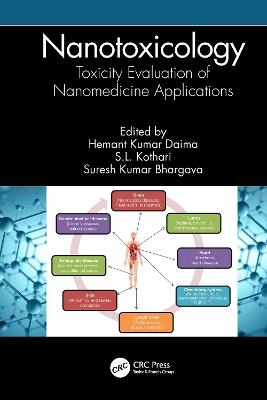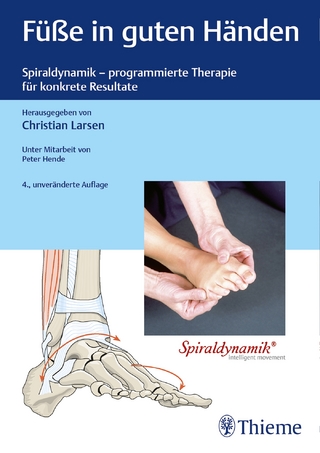
Nanotoxicology
CRC Press (Verlag)
978-0-367-26647-9 (ISBN)
The field of nanomedicine has risen quickly due to the increasing number of designer-made nanomaterials. These nanomaterials have the potential to manage diseases and change the way medicine is currently studied. However, the increased practice of using nanomaterials has shed light on how many concepts of nanomedicine and nanotoxicity have been overlooked. Nanotoxicology: Toxicity Evaluation of Nanomedicine Applications addresses the existing gaps between nanomedicine and nanotoxicity. This book also brings together up-to-date knowledge on advances toward safe-by-design nanomaterials and existing toxicity challenges.
This book delivers a comprehensive coverage in the field with fundamental understanding, serving as a platform to convey essential concepts of nanotoxicology and how these concepts can be employed to develop advanced nanomaterials for a range of biomedical applications. This book is an effort to answer some of the thoughtful nanotoxicological complications and their auspicious probable solutions with new approaches and careful toxicity assessment.
Key Features:
Reveals novel nanoscale approaches, toxicity assessment, and biomedical applications
Includes importance of nanotoxicity concepts in developing smart nanomaterials
Highlights unique contributions and "A to Z" aspects on the state-of-the-art from global leaders
Offers a complete package to learn fundamentals with recommendations on nanomaterials toxicity and safe-by-design nanomedicines
Nanotoxicology: Toxicity Evaluation of Nanomedicine Applications illuminates the high potential of many innovative nanomaterials, ultimately demonstrating them to be promising substitutes for available therapies that can be effectively used in fighting a myriad of biomedical complications. Further, this book reports legal, ethical, safety, and regulatory issues associated with nanomaterials, which have often been neglected, if not overlooked in literature and limiting clinical translation at nanoscale level. It will equip readers with cutting-edge knowledge of promising developments in nanomedicine and nanotoxicology, along with potential future prospects.
Hemant Kumar Daima is A/Professor at Amity University Rajasthan, India and honorary ‘Visiting Research Fellow’ at RMIT University, Melbourne, Australia. Prior to Amity University, he has worked as A/Professor of Nanomedicine at Siddaganga Institute of Technology, India; Research Associate/Tutor at RMIT University, Australia and Research Fellow at University of Rajasthan, India. Dr. Daima obtained his MSc (Biotechnology) from University of Rajasthan, India; PhD (Applied Biology and Nanobiotechnology) from RMIT University, Australia. Dr. Daima is founder of Nano-Bio Interfacial Research Laboratory (NBIRL), and in-charge of newly established Amity University Science and Instrumentation Center-II (AUSIC-II). S. L. Kothari, FBS, FISPM, FNASc, FNAAS is Distinguished Professor of Biotechnology and Vice-President of Amity Science Technology and Innovation Foundation (ASTIF) at Amity University Rajasthan, Jaipur, India. Professor S.L. Kothari graduated from University of Rajasthan, Jaipur, India in 1984 with PhD, and during his long career he held post-doctoral positions as Fulbright Fellow at the University of Illinois, Urbana-Champaign, USA (1983-84); University of Nottingham, UK as Commonwealth Academic Staff Fellow and Rockefeller Foundation Biotechnology Career Fellow (1989-1996); University of Tsukuba, Japan as Visiting Foreign Research Fellow (2003-04). He held academic positions as Professor, Head of Department and Dean Faculty of Science at the University of Rajasthan, Jaipur; and later as Director, Institute of Biotechnology and Pro Vice Chancellor of Amity University Rajasthan, Jaipur. His efforts resulted in to the establishment of Converging Technologies Centre (nano-bio-info-cogno) at the University of Rajasthan, Jaipur that imparts BTech-MTech dual degree in four different streams of Converging Technologies. Suresh Bhargava is Distinguished Professor, Associate Pro Vice-Chancellor (India) and the Founding Director of the Centre for Advanced Materials & Industrial Chemistry at RMIT University, Melbourne, Australia. He obtained his PhD from the University of Exeter, UK and was conferred a DSc (Honoris Causa) by University of Rajasthan, Jaipur, India. Professor Bhargava is a world-renowned interdisciplinary scientist and is recognized for delivering research excellence that underpins significant industrial applications. He published more than 439 journal articles and more than 200 industrial reports.
Chapter 1 Nanomaterials: Types of Nanomaterials and Their
Fundamental Physicochemical Properties....................................... 1
A. Shubha, S. R. Manohara, and S. S. Subhranshu
Chapter 2 Innovations in Nanotechnology for Biomedical Sensing,
Imaging, Drug Delivery, and Therapy........................................... 21
Anine Crous and Heidi Abrahamse
Chapter 3 Nanomaterials for Drug Delivery.................................................. 43
Shailja Jain, Srividya Gorantla, and Gautam Singhvi
Chapter 4 PLGA-Based Nanoparticulate Systems: New Trends in
Nanomedicine................................................................................ 73
Devendra Jain, Abhijeet Singh, Bjorn John Stephen,
Suman Sanadhya, Hemant Kumar Daima,
Harishkumar Madhyastha, and Radha Madhyastha
Chapter 5 Employing New Targeted Nanoencapsulation for
Alzheimer’s Disease Treatment: A Change for the Better?........... 97
Arti Devi and Zaved Ahmed Khan
Chapter 6 Nanomaterials-Assisted Elicitation of
Pharmaceutically Important Secondary Metabolites from
In Vitro Plant Cell Cultures...........................................................117
Sekhar Tiwari, Sachin Kumar Verma, Abhishek Bhargava,
Anusha Ebenezer Alpheus, Rasanpreet Kaur,
Rajesh Sharma, and Neeraj Khare
Chapter 7 Impact of Nanomaterials on Health and Environment................ 133
Faisal Ali, Kanwal Akhtar, Ahmed Nawaz, M. Munir Sajid,
Naveed Akhtar Shad, Muhammad Abdul Qayyum, and Yasir Javed
Chapter 8 Consequences of Nanomaterials on Human
Health and Ecosystem.................................................................. 157
Priyanka Kumari, Richa Seth, and Abha Meena
Chapter 9 Conceptual Understanding of the Mechanisms of
Nanotoxicity and Safety of Nanomedicines................................. 201
Rotimi Damilare, Maimako Rotdelmwa, Ashonibare
Victory, Ogunnupebi Temitope, and Adeyemi Oluyomi Stephen
Chapter 10 Insights into the Mechanisms of Nanotoxicity and
Evaluation of Nanomaterials........................................................ 225
Vinod Kumar Yata
Chapter 11 Sensors to Monitor and Evaluate the Toxicity of
Nanomedicine Applications......................................................... 245
Bambang Kuswandi
Chapter 12 Systems Approaches for Toxicological
Assessment of Nanomaterials...................................................... 277
Hasmik Yepiskoposyan, Marja Talikka,
Vincenzo Belcastro, Nikolai V. Ivanov, Diego Marescotti,
Manuel C. Peitsch, and Julia Hoeng
Chapter 13 Measurement of Oxygen Consumption Rate Based on
Fluorescence Intensity and Lifetime as a Strategy to Assess
Nanotoxicity................................................................................. 303
T. Sushma, Hemant Kumar Daima, D. R. Ramesh Babu,
S. Amutha, and Sangly P. Srinivas
Chapter 14 Current Knowledge on Toxicity of Nanomaterials:
Toxicity Assessment and Impact.................................................. 339
Bhaskar Das, Mayuri Chabukdhara, Sanjukta Patra, and
Manashjit Gogoi
Chapter 15 The Role of Nanotechnology in the Management of
Water Toxicity.............................................................................. 377
Vinod Kumar Yata
Chapter 16 Challenges in the Assessment of Nanotoxicity,
Recommendations, and Safe-by-Design Nanomedicines to
Counter Toxicological Problems.................................................. 393
G. V. S. Subbaroy Sarma, Manoj Kumar Enamala,
Maria P. Nikolova, Murthy Chavali, and
Sudhakar Reddy Pamanji
Chapter 17 Current Guidelines and Regulatory Challenges, Insight into
the Legal, Societal, and Ethical Issues of Nanomaterials............ 445
Harjeet Nath, S. S. Subhranshu, and S. R. Manohara
| Erscheinungsdatum | 16.07.2021 |
|---|---|
| Zusatzinfo | 29 Tables, black and white; 91 Line drawings, black and white; 10 Halftones, black and white; 101 Illustrations, black and white |
| Verlagsort | London |
| Sprache | englisch |
| Maße | 152 x 229 mm |
| Gewicht | 775 g |
| Themenwelt | Medizin / Pharmazie ► Physiotherapie / Ergotherapie ► Orthopädie |
| Naturwissenschaften ► Biologie ► Biochemie | |
| Technik ► Medizintechnik | |
| ISBN-10 | 0-367-26647-4 / 0367266474 |
| ISBN-13 | 978-0-367-26647-9 / 9780367266479 |
| Zustand | Neuware |
| Informationen gemäß Produktsicherheitsverordnung (GPSR) | |
| Haben Sie eine Frage zum Produkt? |
aus dem Bereich


